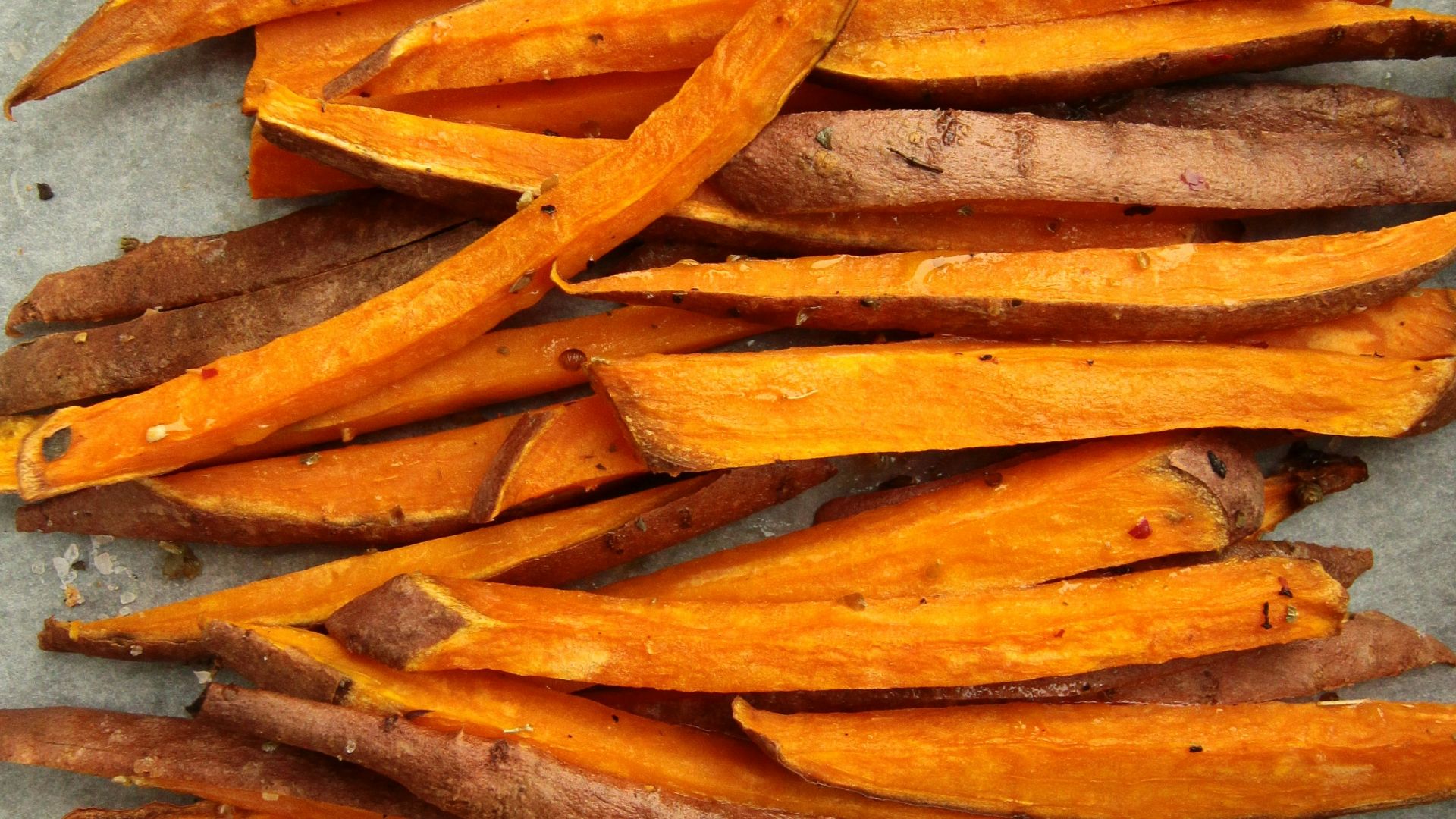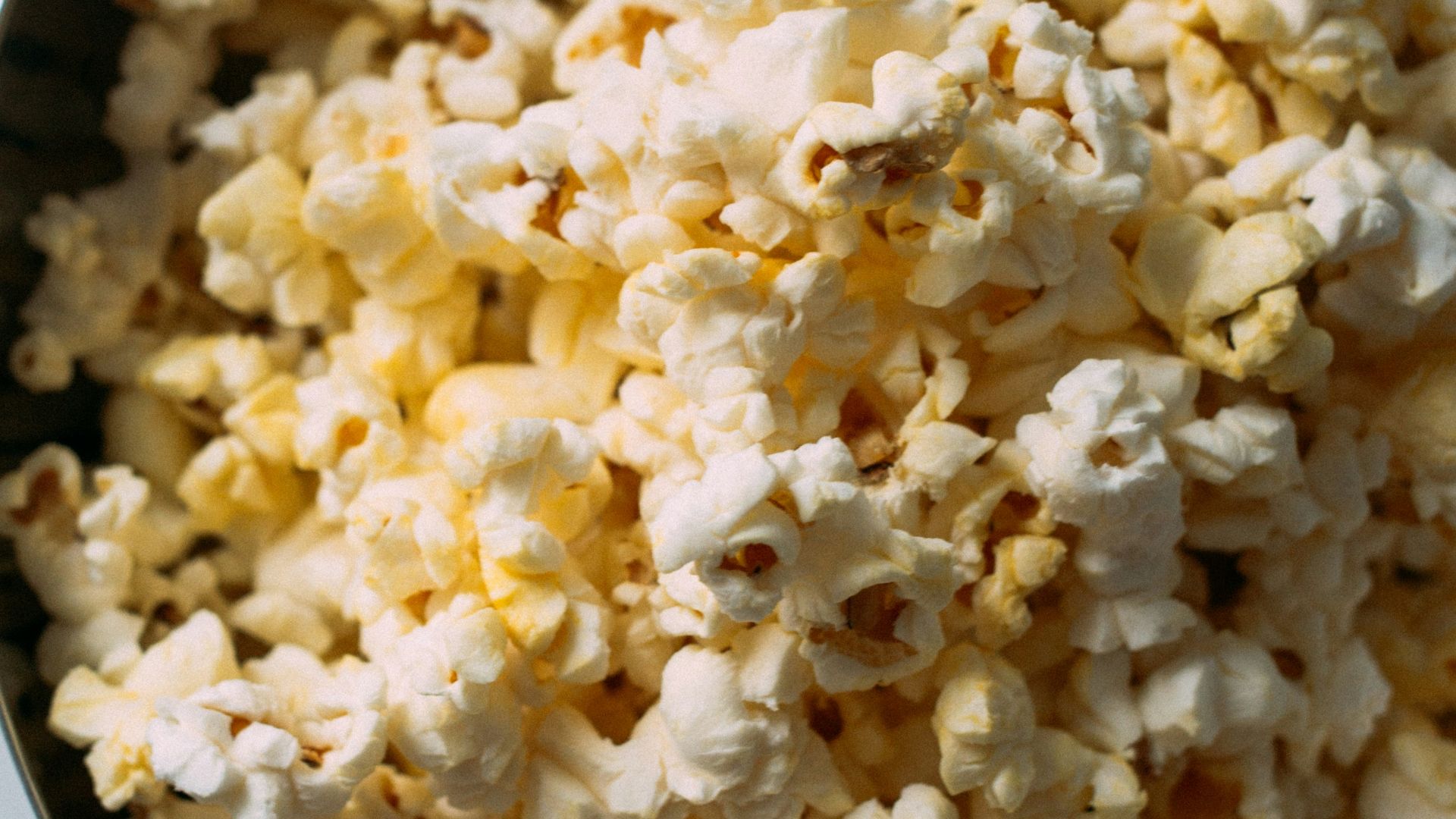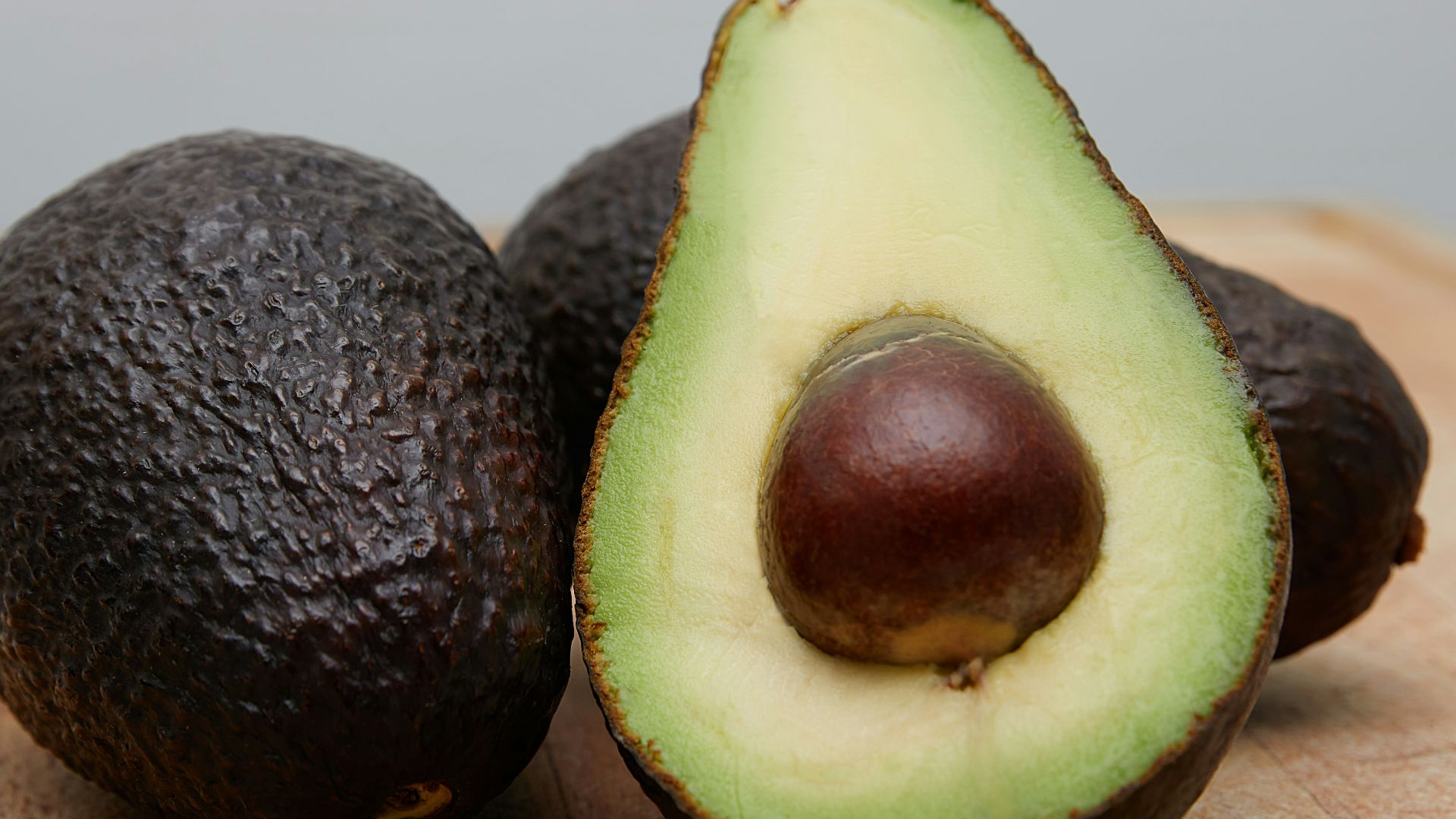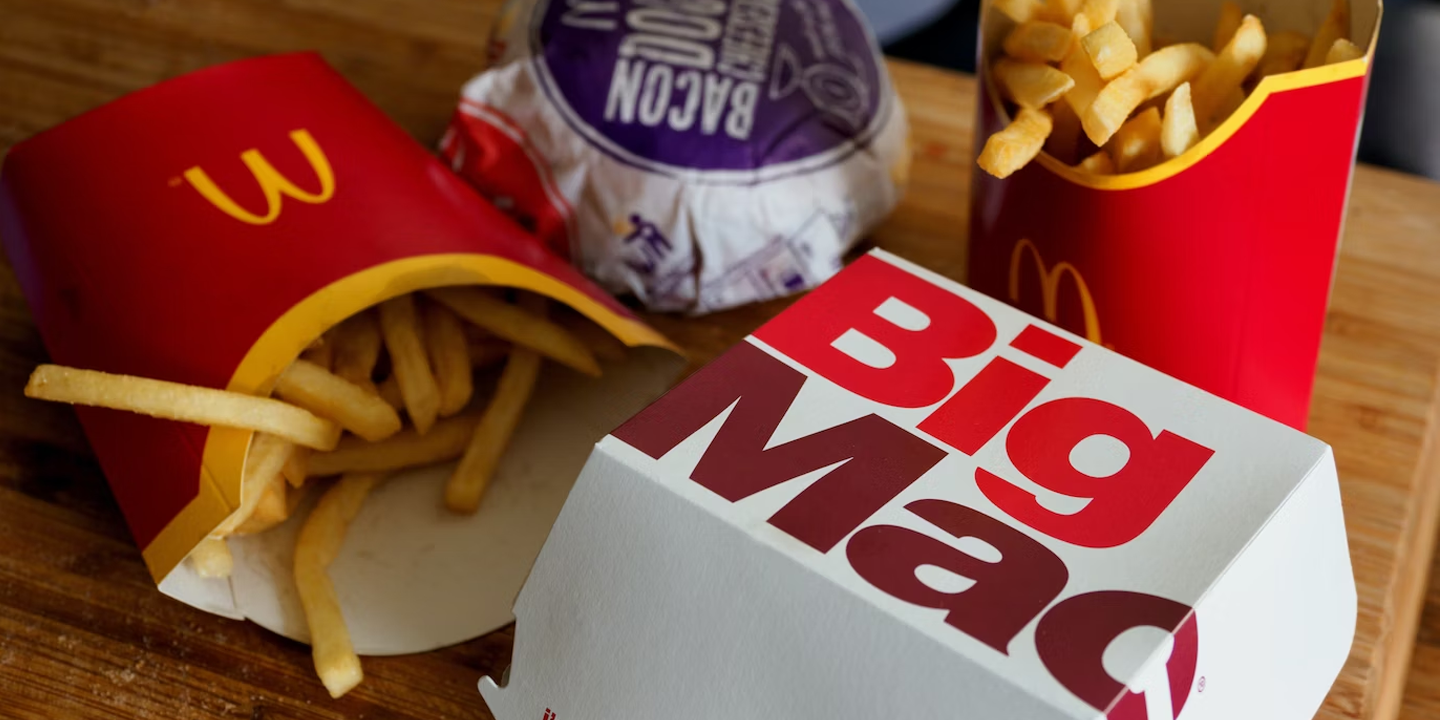When asked to name the “one food” they believe can help you consistently support better health, weight management, and sustainable eating habits, most registered dietitians, aka nutrition pros, reject the premise completely. After all, there’s no one-size-fits-all food, no magic ingredient. There are, in fact, lots of them. But look closely at the foods many registered dietitians actually recommend day after day and three unsung nutritional heroes pop up again and again: sweet potatoes, popcorn, and avocados. Why? They’re accessible, versatile, nutrient-dense, and, most importantly, easy to incorporate into real life. Here’s why these foods make the nutrition expert cut time and time again.
Sweet Potatoes
In terms of nutrition and convenience, few whole, healthy vegetables can top the sweet potato. Yet the average American still eats only 1½ medium sweet potatoes per month. That’s a criminally low number for a vegetable as powerful as this one. At just 100 calories, one medium sweet potato provides a mighty dose of fiber, vitamin A, vitamin C, potassium, and magnesium, which contribute to healthy immune and muscle function and good digestion.
Sweet potatoes are also wonderfully versatile. Their natural sweetness and creamy consistency mean they can be whipped up in the microwave in minutes for a filling lunch. They can also be baked whole for a satisfying, warming dinner, or cut into rounds and roasted to toss on sandwiches or grain bowls. For a fun party appetizer or side dish, baked sweet potato fries are just as crispy and satisfying as traditional fries but require less oil and are lower in calories. They’re also rich in antioxidants and slow-digesting carbohydrates that provide lasting energy and leave you feeling full, exactly what dietitians are trying to encourage people to eat.
Popcorn
Snacking is where many diets go off the rails, which is why dietitians are quick to suggest a snack that’s satisfying, flavorful, and nutrient-dense: air-popped popcorn.
Forget the movie-theater varieties drenched in butter and salt. Plain popcorn is a whole grain that’s high in fiber and surprisingly low in calories. Three whole cups of the stuff pack just 90 calories, but the bulk is what makes popcorn such a weight-loss secret weapon. Popcorn is voluminous; it fills you up and adds bulk without derailing your day.
Popcorn is also a source of magnesium, a mineral that many adults don’t get enough of. Plus, because it’s easily customizable, it never gets boring. One favorite dietitian-approved hack? Topping air-popped corn with nutritional yeast. The buttery, cheesy flavor comes from a savory, golden powder (found in the natural foods aisle) that’s also a low-cal way to boost protein and B vitamins in your diet. For those who need a strategy to move on from processed snacks, popcorn is an ideal intermediary step: It’s deeply satisfying but not really indulgent.
Avocados
In a world where we are counting calories every which way we can, dietitians are quick to remind people that healthy fats aren’t the enemy. Plus, the monounsaturated fats in avocados can add flavor and richness to meals while also helping you feel satisfied and satiated, which is a critical component of curbing cravings or watching your weight.
Avocados are also rich in fiber, potassium, vitamin K, and folate, and are one of the most nutrient-dense foods you can eat. They’re also versatile and convenient: sliced on toast, blended into a smoothie, mashed for guac, or even tossed in a salad to help you feel full.
KEEP ON READING
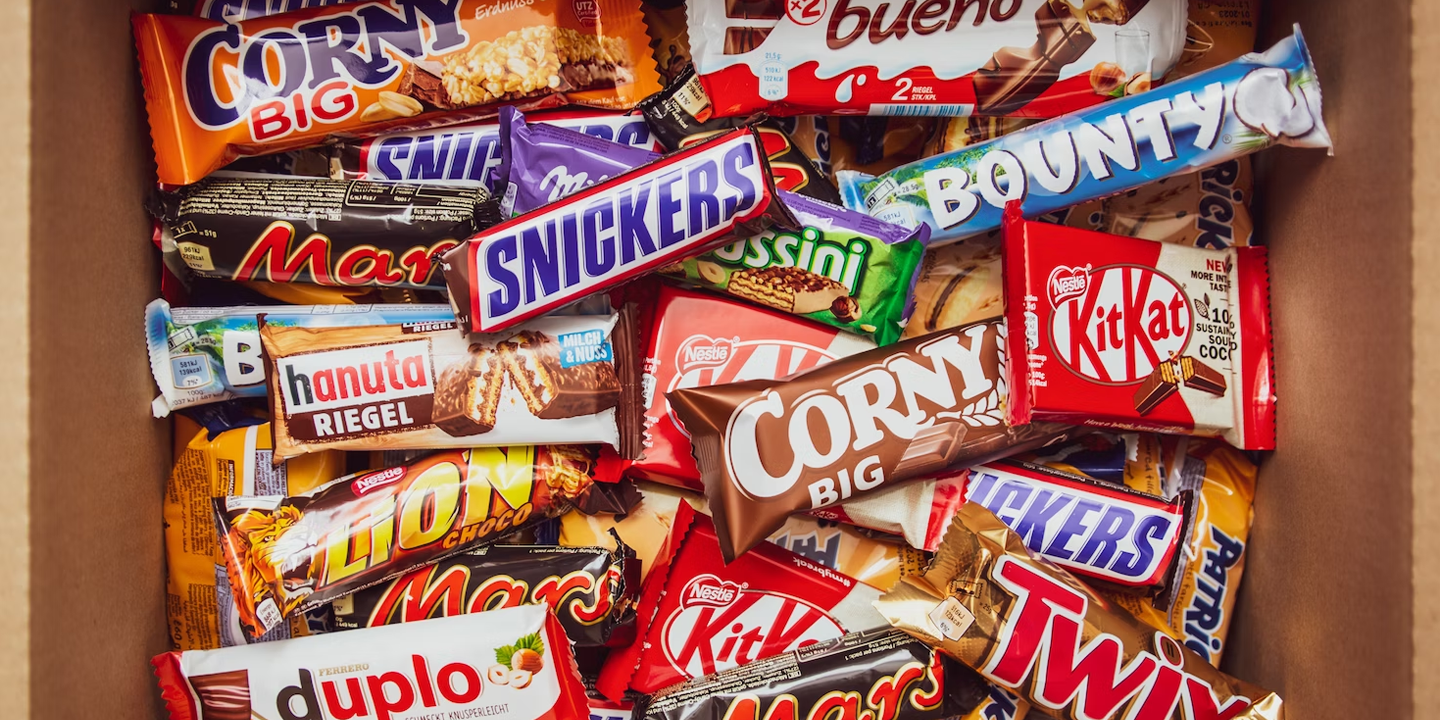
The Most Popular Chocolate Bars in the USA




